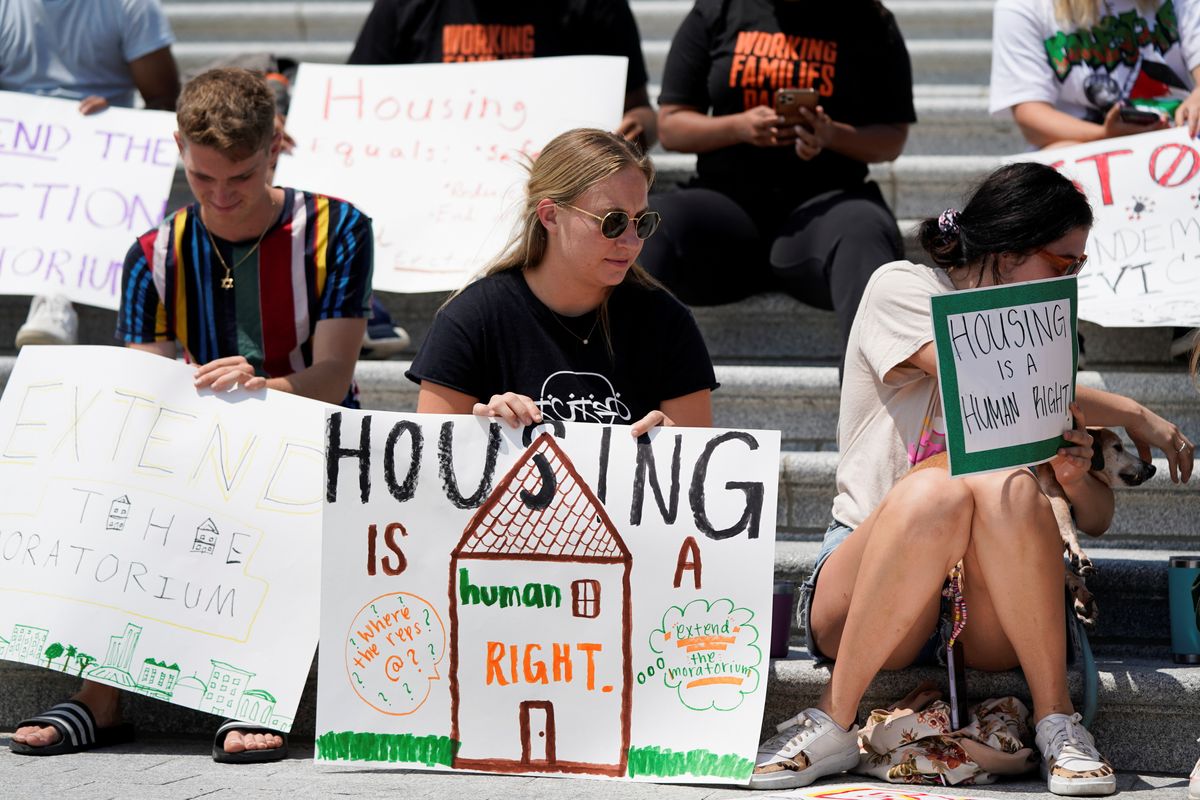A new survey shows there’s a growing fear of recession and social division worldwide
On top of all that, people are more divided.

A few minutes every morning is all you need.
Stay up to date on the world's Headlines and Human Stories. It's fun, it's factual, it's fluff-free.
The backstory: It's no secret that, with the rage of COVID, the ongoing Russian-Ukraine war and central banks hiking interest rates, economic insecurity is at an all-time high. People across the globe are grappling with layoffs and financial hardships, and there's a cost-of-living crisis hitting nearly every corner of the world.
The development: The Edelman Trust Barometer is an annual trust and credibility survey conducted by communications and PR firm Edelman. This year's survey found a trend of people worrying about recession and an overall pessimism hanging in the air. From over 32,000 respondents from 28 countries, only 40% believe they and their families will be "better off" in five years, a 10-point decrease from the previous year and the lowest in the survey's history.
It also found that most people around the world don't trust the government. People trust businesses over government institutions, with 51% of respondents saying they trust the government compared to 62% who trust businesses more.
On top of all that, people are more divided. Many say they have difficulty getting along with others with different beliefs. The study found lots of responses from countries like the US, South Africa, Spain, Sweden, Colombia and Argentina saying that they think the divisions between people are so bad they will never be fixed.
Key comments:
"We are in a period of huge systemic change in a multi-polar world, with divisive forces fanning economic grievance," said Dave Samson, Global Vice Chairman of Corporate Affairs at Edelman.
"If neglected, the result will be increased levels of polarization, slowing economic growth, deeper discrimination, and an inherent inability to solve problems. CEOs, and the companies they lead, must play a central role in addressing these issues and in helping restore economic optimism," added Samson, referring to the risks of failing to cool rising tensions.
"We saw it in the pandemic because of differential outcomes in terms of health, now we see it in terms of the impact of inflation," said Richard Edelman, CEO of Edelman.
"The COVID-19 pandemic and Russia's invasion of Ukraine have further tested international relations and increased skepticism about the benefits of globalization," said the International Monetary Fund (IMF) in a new staff report, referring to the fragmentation of the global economy.




Comments ()